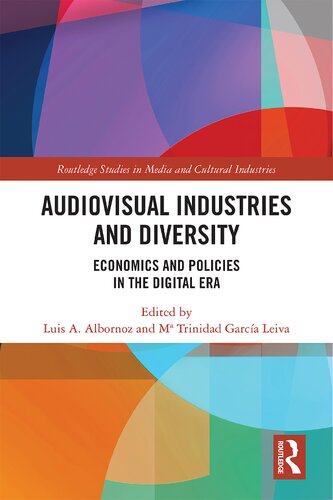

Most ebook files are in PDF format, so you can easily read them using various software such as Foxit Reader or directly on the Google Chrome browser.
Some ebook files are released by publishers in other formats such as .awz, .mobi, .epub, .fb2, etc. You may need to install specific software to read these formats on mobile/PC, such as Calibre.
Please read the tutorial at this link: https://ebookbell.com/faq
We offer FREE conversion to the popular formats you request; however, this may take some time. Therefore, right after payment, please email us, and we will try to provide the service as quickly as possible.
For some exceptional file formats or broken links (if any), please refrain from opening any disputes. Instead, email us first, and we will try to assist within a maximum of 6 hours.
EbookBell Team

5.0
30 reviewsThis book reflects critically on issues of diversity, access, and the expansion of digital technologies in audio-visual industries, particularly in terms of economics and policies.
It brings together specialists in cultural diversity and media industries, presenting an international and interdisciplinary collection of essays that draw from different fields of studies – notably Communication, Economics, Political Science and Law. Among the topics discussed are: the principle of diversity as a goal of cultural and communication policies, the assessment of the UNESCO Convention on Cultural Diversity, free trade agreements and the conception of cultural goods and services they advance, the challenges faced by the production, circulation and consumption of cultural content through the Internet, the role algorithms play in the organization and functioning of online platforms, Netflix and the hegemony of global media. The approach is a critical understanding of audio-visual diversity, that aims to transcend specific issues like media ownership, ideas portrayed or modes of consumption as such, to focus on a more balanced distribution of communicative power.
This volume is an essential read for scholars and researchers in Communication Studies, Economy of Culture, International Relations and International Law, as well as policy makers, journalists specialized in media and culture, and managers of public and private institutions involved in the development of cultural and communication policies. Postgraduate students will find it a key reference point.